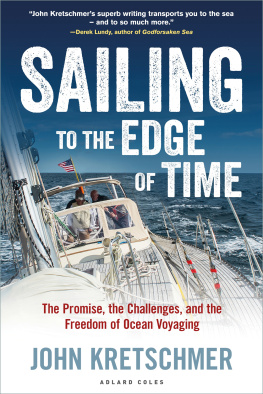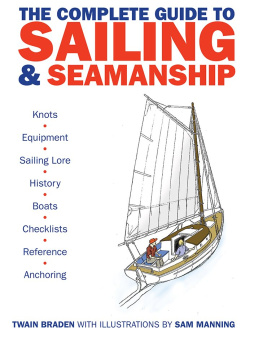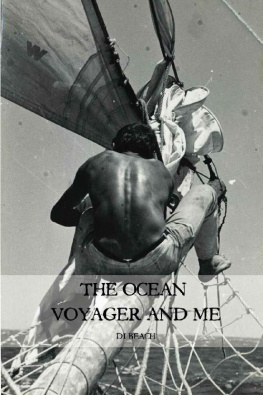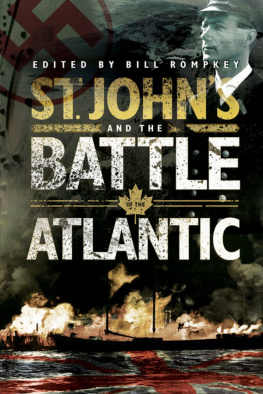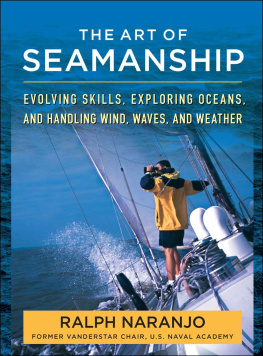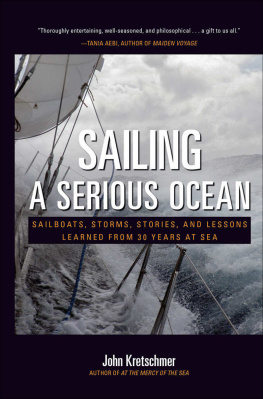
How we spend our days is, of course, how we spend our lives.
ANNIE DILLARD, THE WRITING LIFE
I shall tell you a great secret, my friend. Do not wait for the last judgment, it takes place every day.
ALBERT CAMUS, THE FALL
For Tadji the love of my life and my true friendits our time now.

Contents


April 27, 2018. Latitude N 33 56 Longitude W 75 54. Speed Over Ground 9.2 knots. True Course 040
It seems appropriate to be writing these last words from the cabin of Quetzal. Were on passage, hurtling toward Cape Hatteras with a poled-out genoa on a deep reach. Life is good. Naturally were in the heart of the Gulf Stream, greedy for the 3 knots of extra speed and willingly accepting the lumpy ride that comes with it. I have a delightful crew aboard, a mix of first-timers and Quetzal veterans. We just reeled in a mahi-mahifish tacos are on the menu for lunch. We are bound for the Chesapeake Bay and then on to Solomons, Maryland, and Spring Cove marina. Familiar waypoints and staging pointswe have a busy summer ahead and need to complete a few projects before heading across the Atlantic. We are destined for the Azores, Ireland, Scotland, and beyondanother crossing. We keep moving, always pressing on. Its what we do.
When I think of the many voyages that I have been fortunate to contemplate and complete, I am thankful and humbled. As a kid I dreamed of a sailing life and somehow it has worked out that way. These past 15 years sailing Quetzal have been immensely satisfying. My heartfelt thanks go to the many people who have worked on Quetzal over the years, professionals and volunteersworking long hours repairing and refitting the old girl in boatyards the world overwho have embraced her spirit and understand our need to be at sea.
Of course our passages have been made possible by the folks who have signed aboard: devoted sailors and adventurers who took a leap of faith, stood watch on the blackest of nights, and shared their dreams as we crossed oceans together. You are the lifeblood of Quetzal and I regret that I cant mention you each by name. Every one of you lives in these pages.In addition to those mentioned in the book, I would like to thank a few dear friends who have been indispensable to Quetzal and her captain: Bob Pingel (who does appear in the book but who has done so much for Quetzal over the years, he needs mentioning again), Rick and Janie Thompson, and Tim Johnson. They have provided support and wisdom that has allowed us to keep sailing the oceans of the world.Id also like to thank my stepson Nick Rodriguez. He was an early reader of the manuscript, and also endured many stories in the breaks between our spirited games of one-on-one basketball.
Thanks to my magazine editors and publishers for sharing my story in their pages and granting permission for much of that material to appear in these pages: Greta and Erin Schanen at Sailing ; Herb McCormick and Mark Pilsbury at Cruising World ; and Peter Nielsen at Sail .
Writing a book is never easy and, in many ways, this is the book Ive been writing my entire life, which only makes the job more demanding. My editor and dear friend, Molly Mulhern, is responsible for anything good about Sailing to the Edge of Time and the faults are entirely mine. This is the third book of mine that Molly has edited, and this one was the most challenging. I had ideas and stories but Molly had the vision, saw it as a book, and believed in my lofty ambition of trying to nail down the essence of the good life at sea. She was instrumental in helping me find my voice and keeping me on course. I cant thank her enough.
The sailors and publishing professionals at Adlard Coles/Bloomsbury have seen to it that we North American sailors have a home and a voice on their list, and I am profoundly grateful and appreciative of their expertise. Hats off to Janet Murphy and her entire crew, especially Penny Phillips for seeing to all the details of publishing Sailing to the Edge of Time .
Finally, my wife Tadji did what only she can do, finding intriguing places for me to write in between voyages, and keeping me inspired when I despaired. Parts of this book were written in the 11th arrondissement of Paris, the seaside village of Anavyssos, outside of Athens, Deia on the north shore of Majorca, the Giudecca district of Venice, Cape Town, Antigua, Guadeloupe, Isla Mujures and San Miguel de Allende in Mexico, and Placencia, in southern Belize. Tadji was my anchor that never dragged through the entire process. I must say, she seemed to enjoy our writing travels too. We are partners in sailing, travel, and life, and I love her profoundly.
John Kretschmer
Aboard Quetzal
At Sea

Sometimes a sailor embodies two rare things coming together: the accomplishment of great voyages at sea, and the ability to write about them with intelligence, self-reflection and a high style.
In previous centuries the three masterful sea-brothersRichard Henry Dana, Herman Melville, and Joseph Conradexemplified that experience and singular ability. Then, the first lone circumnavigator, Joshua Slocum, comes to mind, and others who could sail far and write well: Richard Maury, Hilaire Belloc, and Jack London. In our own time, the virtuoso French singlehander Bernard Moitessier, the square-rigger captain Alan Villiers, and small-boat sailors such as Eric Hiscock, Lin and Larry Pardey, and Hal Roth, have sailed the oceans and written about how to do it and what it means to them.
In their accounts, the reader learns about the voyage itselfthe practical and mundane, yet essential, requirements for safely completing an open ocean passage under sail. But these writers often give us more: they reaffirm the role of the sea in our consciousness as a place of trial and courage, of honor and inspiration, and most of all, as the last great setting for untrammeled human freedom.
John Kretschmer fits easily into this distinguished coterie. I doubt that any living sailor has put in more miles at sea in small sailing vessels. His experience is astonishing in its variety, and in its relentlessness. By the latter I mean Johns unparalleledand profounddesire always to leave the land, to be at sea. He cant resist the call that urges the heart to the whales way over the stretch of the seas, as the Anglo-Saxon poem The Seafarer puts it. John exemplifies the dictum: life on land is complicated, cluttered, compromised; life at sea is clean, simple, honorable. Theres a blessed eternity to the sea, and time loses its greedy grip on our experiences, he writes.
But experience is nothing without the ability to describe it, to draw lessons from it, and to place it in the context of life on Planet Earthwhich should be called Planet Ocean. And John Kretschmer is one of the chosen: he knows the sea and boats and he knows how to write about them. Sailing to the Edge of Time is a notable addition to his other fine books. Through the accretion of stories about his experiences at sea, how he handles crises, the mistakes he has made, we absorb his invaluable knowledge, and a sense of the skills such deep understanding brings. At the same time, he tells us what the sea means to him, and how it feels to sail itthe intense joys and satisfactions, or anxietiesto run swiftly and easily before trade winds or precariously before gales, to ghost in light air, to heave-to or to fore-reach in heavy weather when nothing else is possible.

